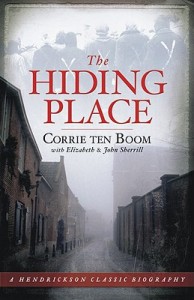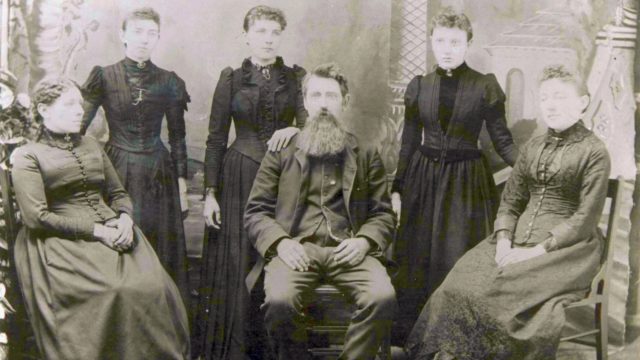The Hiding Place
 The Hiding Place is the story of Corrie Ten Boom, a Dutch woman best known as a participant in the Dutch underground during the second world war whose home had a hidden room to shelter those fleeing Hitler’s regime. Or so I’ve always had her classified in my mind. This book makes it clear that her life and impact include much more.
The Hiding Place is the story of Corrie Ten Boom, a Dutch woman best known as a participant in the Dutch underground during the second world war whose home had a hidden room to shelter those fleeing Hitler’s regime. Or so I’ve always had her classified in my mind. This book makes it clear that her life and impact include much more.
What probably struck me most was how full and rich the Ten Boom family’s Christian faith and practice were, long before the war. Like the biblical Rebekah, whose offer to water the camels of Isaac’s servant was simply an expression of a helpful character already formed, the Ten Boom family already had deeply ingrained habits of Bible study and prayer and service. They fed the poor outside their door. They took in orphans. They cared for one another in a way that attracted others to want to be with them. Corrie herself, in addition to caring for her parents and sisters and helping her father in his watch repair shop, ran a program for the mentally handicapped.
Habits of service and caring were so firmly in place that it seemed a natural next step to become involved in the underground. Even though it cost some family members their lives, and resulted in Corrie’s imprisonment in Ravensbruck concentration camp with her sister Betsie (who died there), it was never really a debate for this family whether to provide shelter and care for the oppressed.
Many of the characters are inspiring people. Caspar Ten Boom, Corrie’s father, is an unceasing flow of wisdom and simple love for others. I found Betsie to be so far out of my league spiritually that I couldn’t relate to her. In the darkest days of concentration camp cruelty, she continued to love her captors and long for them to respond to the power of Christ’s love to overpower evil. Corrie too is an amazing saint who survives the war and carries out Betsie’s vision to create a home for those damaged by its horrors to recover and find spiritual wholeness. But Corrie is a practical soul who somehow manages to be relatable even as she undergoes horrific experiences with grace. She underscores that even in the blackest of circumstances, the temptations and struggles of a Christian are the same: resisting selfishness, loving enemies, surrendering things impossible to understand or carry to Christ. And his love is powerful enough to reach even there.
This is the tale of a Christian who travels to the darkest heart of evil and returns with a faith strengthened and made more fertile and eloquent. It leaves me feeling totally inadequate and wraith-like in my faith, yet somehow manages to encourage and inspire — a sure mark of the voice of God, in my experience. Remarkably, this is not a book about “theodicy.” When in circumstances that would seem to make the question, “Where is God? How can he allow this?” most tempting, Corrie Ten Boom finds that her faith in fact gains an even stronger foothold. I’ll give Corrie the last word, describing here the power of God’s word, a copy of which she and Betsie manage to preserve through what seem at times miraculous means, in Ravensbruck:
Why others should suffer we were not shown. As for us, from morning until lights-out, whenever we were not in ranks for roll call, our Bible was the center of an ever-widening circle of help and hope. Like waifs clustered around a blazing fire, we gathered about it, holding our hearts to its warmth and light. The blacker the night around us grew, the brighter and truer and more beautiful burned the word of God…
Life in Ravensbruck took place on two separate levels, mutually impossible. One, the observable, external life, grew every day more horrible. The other, the life we lived with God, grew daily better, truth upon truth, glory upon glory.
Sometimes I would slip the Bible from its little sack with hands that shook, so mysterious had it become to me. It was new; it had just been written. I marveled sometimes that the ink was dry. I had believed the Bible always, but reading it now had nothing to do with belief. It was simply a description of the way things were — of hell and heaven, of how men act and how God acts.


